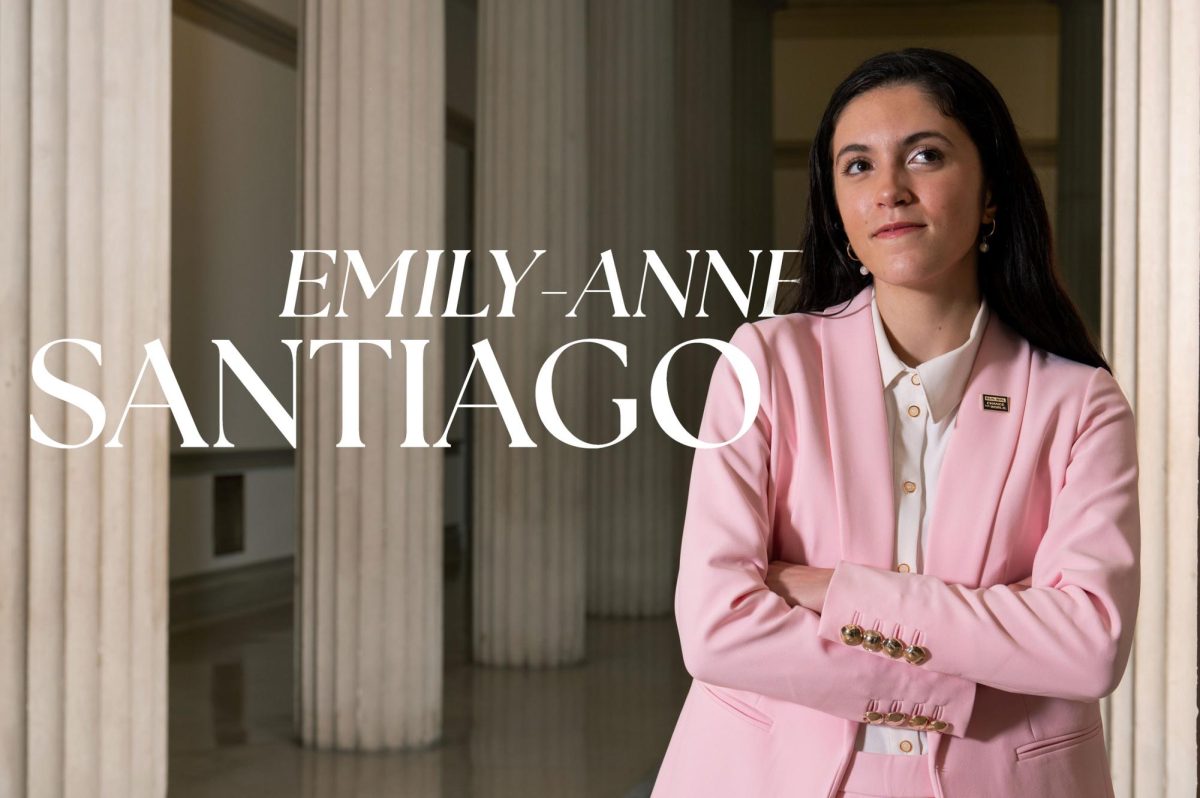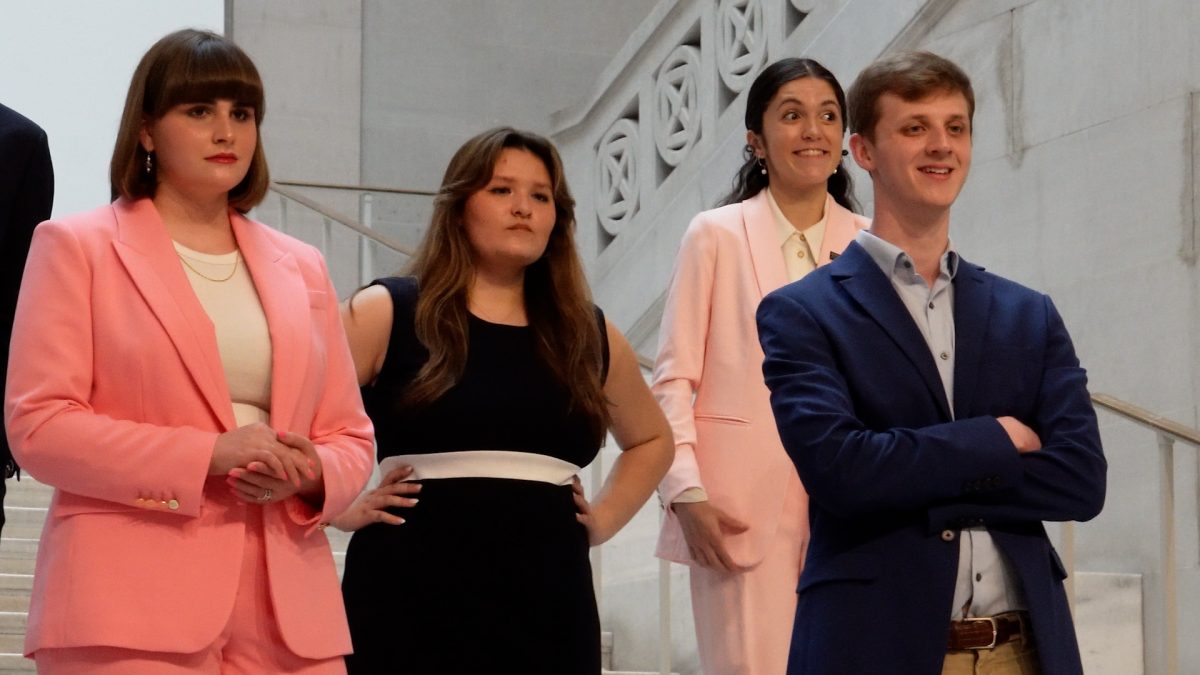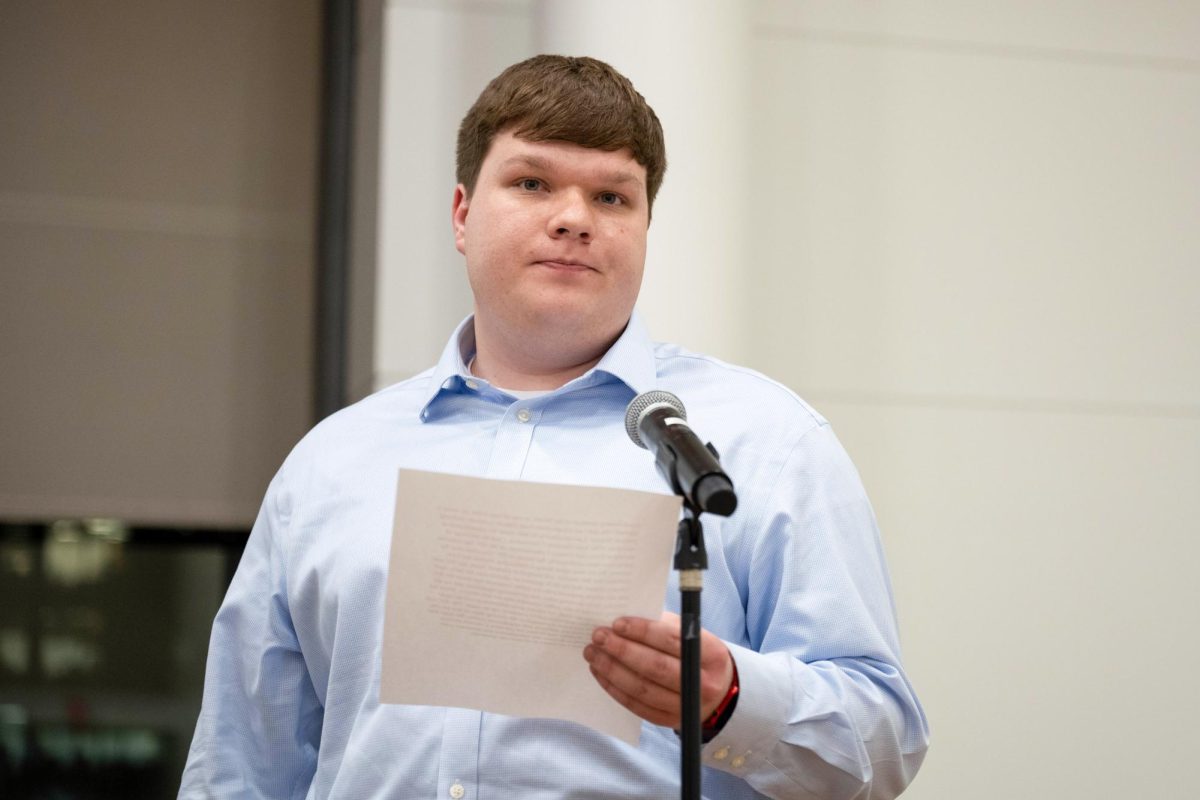Year: Junior
Major: Political science and accounting
Hometown: Broward County, Florida
Student organizations/campus activities: president of GW College Democrats and the Eta Eta Chapter of Lambda Theta Alpha Latin Sorority, Inc., Posse Scholars, University Honors Program, Campus Living & Residential Education community engagement advisor
Prior SGA experience: None
Favorite D.C. restaurant: Qui Qui DC
Go-to GW study spot: Fourth floor of Gelman Library and patio benches in Kogan Plaza
Who is your role model: Pete Buttigieg
Ideal walk-up song: “Ho Hey” by The Lumineers
GW Deli order: Sausage, egg and cheese on an asiago bagel
Emily-Anne Santiago is no stranger to wrestling with campus politics.
The president of GW College Democrats, Santiago runs one of the largest student organizations on campus — with about 1,140 registered members on Engage — which has given her the leadership skills to take on the SGA’s top position, she said. Santiago said she’s worked with thousands of students and national organizations, like the Democratic National Committee to “push forward narratives” and provide political experiences to students, like canvassing in Pennsylvania ahead of the 2024 election.
“Resilience and the ability to pop back up after hardship is a skill College Dems has reinforced but one I am honored to have,” Santiago said in a message.
Santiago said a “plethora” of motivations, like a lack of representation in the SGA presidential candidate pool and student grievances about grocery story access, pushed her to run as the race’s lone SGA outsider.
“I have all these issues that people have come to me with about GW and also that I have accumulated about GW, and I can say ‘I’m near done to graduation. I’m ready to leave. This is someone else’s issue,’” Santiago said. “Or I can say, ‘In my last year, I have the opportunity to take these issues that people have entrusted me with and make change with them.’”
Santiago said she’s able to reach and connect more with historically marginalized campus communities because of her multiple identities as someone who is half-Cuban, half-Puerto Rican, a scholarship recipient and a student who receives Disability Support Services accommodations.
Being part of these communities allows her to understand the experiences that students in these groups endure, equipping her with a “different level” of commitment to advocacy on certain issues compared to the other candidates, she said.
Santiago’s “Grow Together” agenda focuses on increasing student voice and representation through the establishment of “resource groups” for students from historically underrepresented communities and a “graduate student advisory board.”
Santiago said she wants to reimplement the fixed tuition policy from 2019, where students paid a fixed rate throughout their GW tenure, and establish an SGA scholarship fund — funded by the executive and the SGA Senate budgets — for any incoming first-year students with the help of potential matches from donors and alumni.
Santiago also wants to implement a “centralized” portal for students with DSS accommodations to aggregate all information into a single website for students and faculty, seek community input on arming GW Police Department officers and work with administrators to “develop a plan” to remove the fences around University Yard through “listening circles.”
Santiago said establishing a licensed mental health and crisis counselor in each of the five campus residential neighborhoods to ensure there are enough resources spread out around campus is another point on her platform.
She’d also like to start the on-campus housing process a month earlier than the normal January to April window to give students seeking off-campus living arrangements more time to look at available off-campus buildings, she said.
“It’s a simple fix, just moving the whole process a month earlier, but it provides students with so much more comfort and the opportunity to go apartment hunting with more time and not just during finals,” Santiago said. “Little changes but big impact.”
Santiago said the current SGA doesn’t give students enough autonomy or choices when making decisions, especially those pertaining to student organization policies and wants to gain greater student input before making decisions. As someone without SGA experience, Santiago said an outside perspective is needed to give “power back” to students.
Santiago said she plans to appoint “institutionalists” to work under her in the SGA to help her understand how the SGA functions and get feedback from people with different viewpoints.
“In any power structure — whether it be real government or student government — it’s always hard to get criticism,” Santiago said. “But I don’t see criticism as a bad thing, personally. I see it as people caring enough to want you to do better.”
In September, the SGA started hosting monthly student group leader meetings where organization presidents could relay any concerns directly to the governing body’s leaders. Santiago said the meetings were a “great idea” but described them as “jumbled” and crowded, with 200 student organization leaders in attendance all speaking about different issues.
Santiago said her first agenda item, if elected, would be to restructure the meetings and group them by each organization’s similar interests.
She said as president of a multicultural Greek sorority and GW Democrats, different organizations have different needs and the specialized meetings could help foster communication and future collaborations within the organizations more effectively address the needs of the organizations.
“It’d be more work for the SGA, but it’s work that I’d be more than willing to put on,” Santiago said.





